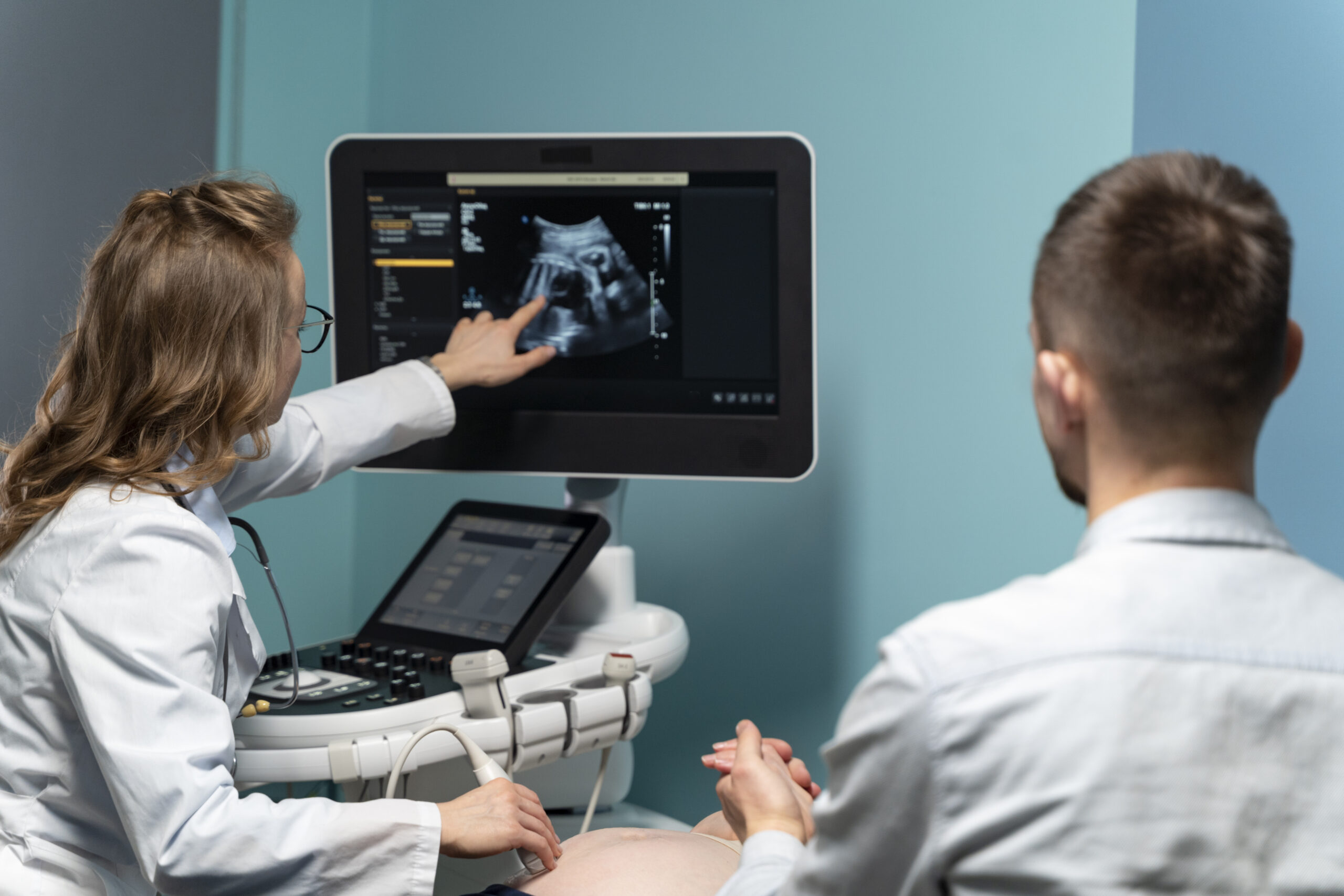
What is Lupus?
March 7, 2025
What is Magnesium Glycinate good for?
March 20, 2025What is Pancreatitis?Understanding Symptoms, Causes, and Treatment Options

Pancreatitis is a serious disease characterized by the inflammation of the pancreas. This organ plays a crucial role in digestion and hormone production. The condition is severe and leads to pain, digestive issues, and sometimes, life-threatening complications. Pancreatitis can be acute, or it can become chronic, and it may appear suddenly or over time. Here is a general overview of the condition, types, causes, symptoms, and treatment.
What Is Pancreatitis?
Pancreatitis is inflammation of the pancreas, which is an organ that produces digestive enzymes and hormones such as insulin. When inflammation occurs in the pancreas, it is not able to do its job; hence, many symptoms and complications arise. Acute pancreatitis is when the symptoms appear quickly, while chronic pancreatitis has inflammation that develops over time, causing permanent damage to the organ.
Types of Pancreatitis
There are two main forms of pancreatitis:
Acute Pancreatitis
It is acute inflammation of the pancreas and is often seen with severe upper abdominal pain, nausea, vomiting, and occasionally fever. The condition develops within a few days and is usually life-threatening unless treated. Among the causes, some are listed below.
- Gallstones: can cause a blockage of the bile ducts, causing an accumulation of pancreatic enzymes in the pancreas that leads to its inflammation.

- Heavy drinking: Heavy drinking is the main risk factor for acute pancreatitis.
- Medications: Some medications can cause inflammation of the pancreas.
- High triglycerides: High levels of triglycerides in the blood can lead to acute pancreatitis.
Chronic Pancreatitis
This type of pancreatitis is a form of long-lasting inflammation that brings permanent damage and scarring in the pancreas. Most forms of pancreatitis are due to prolonged alcohol abuse or genetic reasons. Eventually, chronic pancreatitis can damage the pancreas in its ability to produce digestive enzymes and insulin; this causes malabsorption and weight loss in addition to developing diabetes. Chronic pancreatitis occurs due to one of the following:
- Long-term alcohol intake: This condition is the leading cause of the chronic form.
- Genetic abnormality: Many inherited conditions make one prone to developing chronic pancreatitis.
- Clogging of pancreatic ducts: The ducts that drain this organ can clog, thus causing chronic pancreatitis.
- Autoimmune pancreatitis: In most cases, an autoimmune disease incorrectly attacks the organ, causing the damage to occur over a period of time.
Symptoms of Pancreatitis

The symptoms of pancreatitis are different if it is acute or chronic. Common symptoms include the following:
Severe Abdominal Pain
The most evident symptom of pancreatitis is pain. In acute pancreatitis, pain is sharp and sudden. In most cases, it begins in the upper abdomen and then may radiate to the back and worsen after eating. The pain of chronic pancreatitis can be continuous but recurrent.
Nausea and Vomiting
Nausea and vomiting are among the common manifestations of acute and chronic pancreatitis. These symptoms arise because of the interruption of the working mechanism of the pancreas, which affects digestion.
Fever
It is quite common with acute pancreatitis wherein fever is also an indicator of inflammation or infection. Monitor body temperature to establish if the condition is worsening.
Swelling and Tenderness in the Abdomen
The abdomen is swollen and tender to the touch. This indicates that the pancreas is inflamed and might be accompanied by bloating.
Jaundice
In some cases, pancreatitis can cause blockage of the bile duct, leading to jaundice. Jaundice is a condition where the skin and eyes turn yellow due to the presence of bilirubin in the blood.
Unexplained Weight Loss and Fatty Stools
Chronic pancreatitis can cause malabsorption, which is the inability of the body to absorb nutrients. This causes weight loss and the presence of fatty stools, a condition known as steatorrhea.
Causes of Pancreatitis
Pancreatitis can be caused by several factors. These include:
Gallstones
Gallstones may cause obstruction in the bile duct and pancreatic duct. This leads to a backup of digestive enzymes within the pancreas, which causes inflammation and damage to the organ.
Overindulgence in Alcohol
Hyper-alcoholism can cause inflammation of the pancreas. The repeated stress from alcohol can damage pancreatic cells and impair the function of the organ.
High Blood Triglycerides
High levels of triglycerides can lead to acute pancreatitis in a patient. When the levels of triglycerides are high, they can cause damage to the pancreas.
Medications
Some medications are corticosteroids, diuretics, and some drugs used in the treatment of HIV. These drugs can cause pancreatitis as an adverse effect.
Infections
Infections such as mumps, hepatitis, or viral gastroenteritis can be contributing factors in the development of pancreatitis.
Trauma or Surgery
Pancreatitis results from injury of the pancreas. This occurs through a road accident or following surgical intervention to the abdomen.
Genetic Condition
Some forms of genetic disease increase the risks for pancreatitis. These conditions include cystic fibrosis, hereditary pancreatitis, etc.
Diagnosis of Pancreatitis
Some doctors diagnose the patient with pancreatitis using one or a combination of the following:
Physical Exam
A patient is examined based on symptoms experienced in the case of pancreatitis, such as abdominal pain or swelling.
Blood Tests
The blood test aids in diagnosing pancreatitis since heightened activity of enzymes in the pancreas, like amylase and lipase, is often a sign of inflammation in the pancreas.

Imaging Tests
Visual imaging tests used include CT scan, ultrasound, and MRI to evaluate the pancreas to identify inflammation, blockage, or cyst.
Endoscopic Procedures
The ERCP can sometimes use the procedure to examine the pancreatic ducts and bile duct for blockages.
Treatment for Pancreatitis

The severity of pancreatitis will determine how the treatment of this condition should be done. These are the general treatments available for pancreatitis:
Hospitalization
For most people who experience acute pancreatitis, treatment is only necessary if done at the hospital. Intravenous fluids are generally given to help in preventing dehydration as well as control symptoms. When it's worse, some will require critical care.
Fasting and Nutritional Support
There's an indication to fast in the meantime, where fluids and nutrients can be intravenously introduced or by the feeding tube as well.
Pain Management
There is one prominent part of treating pancreatitis in pain control. Acetaminophen, ibuprofen, and even more pain medication might be prescribed for that patient.
Enzyme Replacement Therapy
In chronic pancreatitis, enzyme replacement therapy may also be required because the pancreas is no longer producing enough enzymes to digest food.
Surgical Treatments
Surgery may be required to remove gallstones, drain abscesses, or remove damaged tissue from the pancreas. In severe cases, surgery may involve the removal of part of the pancreas.
Lifestyle Changes
Avoiding alcohol, low-fat diet, and treatment of conditions such as high cholesterol or diabetes prevent further episodes of pancreatitis.
Prevention of Pancreatitis
While pancreatitis cannot be prevented at all times, the following may help minimize the risk.
- Reduce Alcohol Intake: Refrain from taking alcohol or its reduction can be useful in avoiding alcohol-induced pancreatitis.
- Maintain a Healthy Diet: A diet containing much less fat and well balanced can help in preventing disorders such as high triglycerides.
- Managing Health Conditions: Diabetes, hypertension, and hyper-cholesterolemia can be managed to check their progression.
- Routine Check-Ups: Medical follow-ups regularly may alert doctors to the early signs of pancreatitis that can be intervened in time.
Conclusion
Pancreatitis is a serious condition, which can become life-threatening in the event that proper management is not applied. Being aware of the symptoms, causes, and treatments will assist in the proper management of the condition and will decrease the potential damage that can be done to the pancreas. If you or someone you know is experiencing symptoms of pancreatitis, it is important to schedule a GI consultation for expert evaluation and treatment. Medical care should be sought immediately. For more information on pancreatitis and its treatment, visit Gastro NYC
Contact Us
If you or a loved one needs ERCP, please don’t hesitate to get in touch with Gastroenterology Associates of NYC.
📞 Call us: (212) 889–5544 • Book Appointment for expert consultation and treatment.



